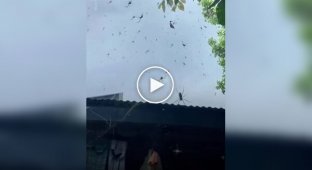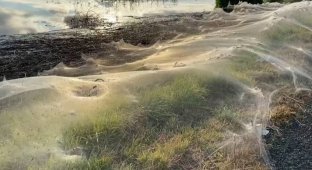Spider Island: Miles of Spider Webs Turn This Land into a Horror Movie (11 photos)
Thousands of spiders have gathered on this ominous patch of land, crawling literally everywhere, their sticky webs covering everything—trees, cars, streets, houses... Brrr! 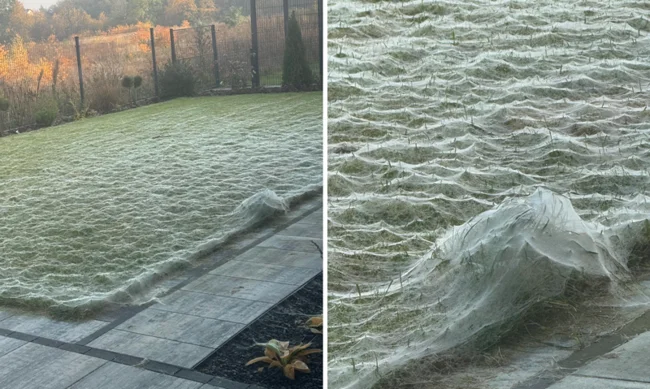
Just the sight of them makes your whole body itch. And you know what's worst? No one knows when these monsters will come again! They're gone today, but tomorrow everything around will turn into your worst nightmare. 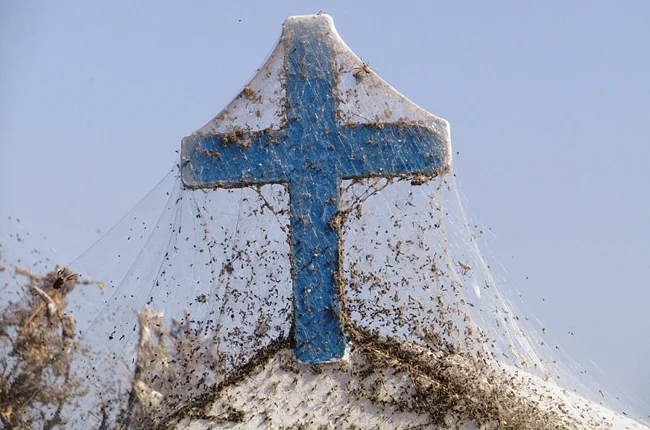
Abandon all hope, all ye who enter here...
In western Greece, in the Mesolonghi Lagoon, lies a small island nestled comfortably. Long ago, people built the city of Aitoliko on it. It occupies the entire island—a mere 43 square kilometers. Since time immemorial, a quiet, measured life has reigned there. World travel guides call this place "Little Venice." Can you feel that gentle sea breeze and tranquility yet? Oh, right! Spiders spoil the island's idyllic atmosphere! 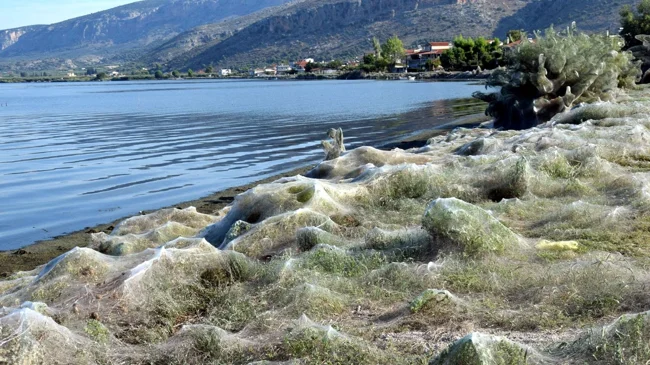
This isn't sea foam frozen on the grass... 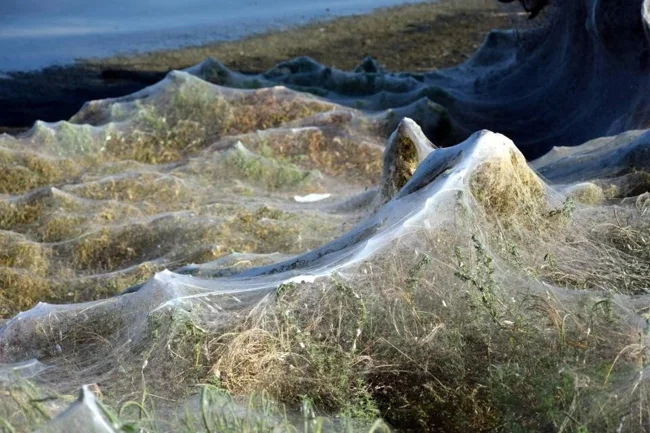
This whole thing is one solid web!
Every 3-5 years, arthropods seize control of Aitoliko and turn it into Spider Island. There are so many of them that the entire island is covered in webbing, as if it were trapped. Horrible! At least for us. The locals have long since gotten used to this kind of presence. They're not afraid at all; they calmly go out for walks and enjoy the sight of the city entangled in webs. How do they even survive there?! 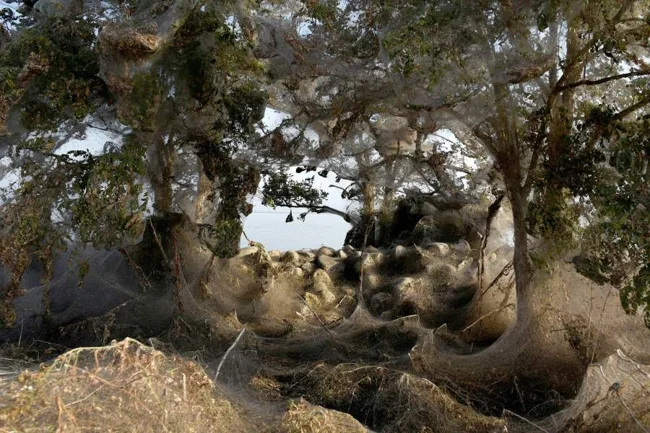
When you haven't cleaned your room for a month.
The fact is, the island has been occupied by spiders from the tetragnathid family. But we'll reveal a terrible secret: these arthropods have taken over not just the Greek island, but the entire world! Many species in this family are considered cosmopolitan, meaning they live on every continent across the planet. They even live in icy Iceland, let alone Greece. 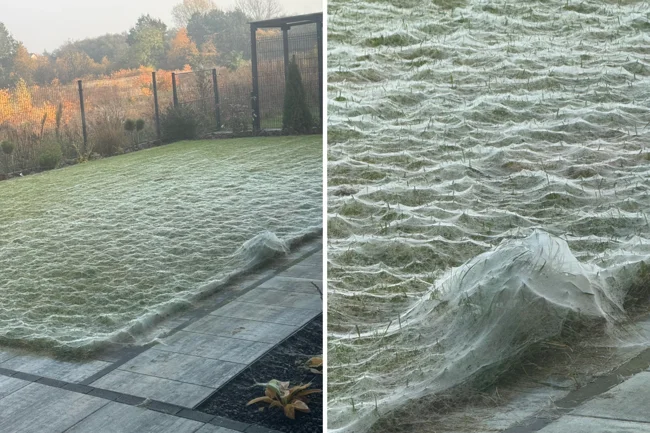
Don't use a lawn mower in this area. They're going to use a flamethrower there!
So, should we sound the alarm all over the world? Of course not! Tetragnathid spiders are tiny and inconspicuous—just 1-2 centimeters long with a grayish-brown coloration. But most importantly, these fellows are completely harmless to humans. Their chelicerae are so weak that they can't even pierce human skin. 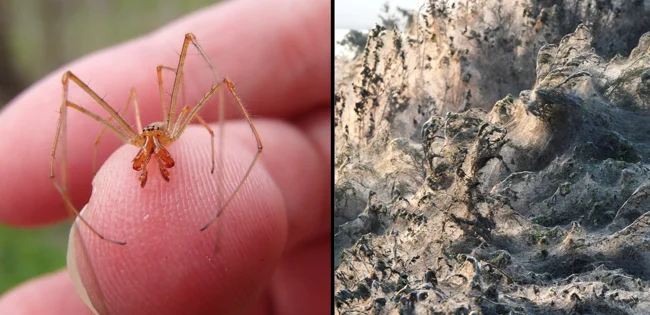
An artist and his creation.
These spiders love humidity and nest near bodies of water. They especially favor quiet, stagnant lakes and calm lagoons. This is where their favorite prey—gnats—resides! The Mesolonghi Lagoon fits the description perfectly. Add to the equation a magnificent Mediterranean climate, and you have ideal living conditions. 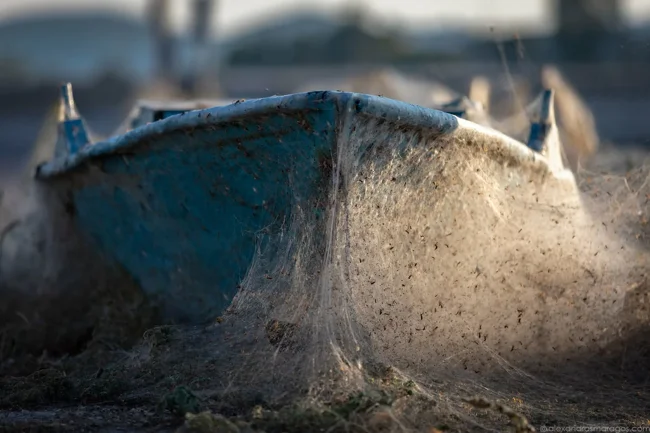
This boat definitely won't sail anywhere today.
Spiders are practically permanent residents of Aitoliko, but they usually remain quiet. But there are years when several favorable factors coincide. Like 2018, for example. The summer in Greece was hot and humid, and the autumn also brought good weather. This led to a proliferation of midges. So, tetragnathids from all over the island flocked to the coast to set nets and catch more food. 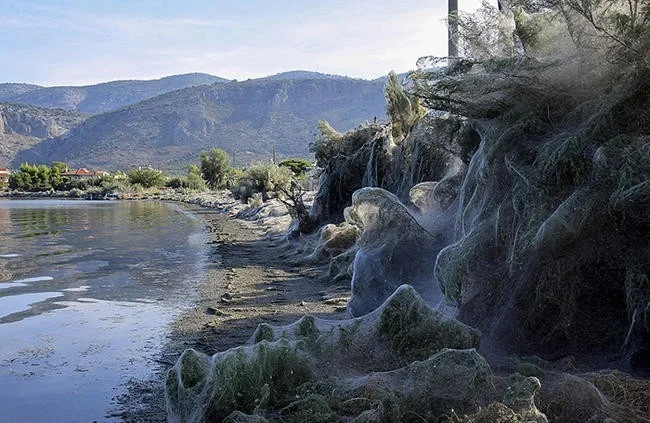
At least there are no midges! Although I don't even know what's worse...
Plus, this season coincided with breeding season, so the spiders went wild. They spun tons of webs, tangling everything around them, ate, and mated. The young hatched there, and then spun their own webs. Because of this, hundreds of meters of the coastal area were densely tangled in webs, like the set of a horror movie. 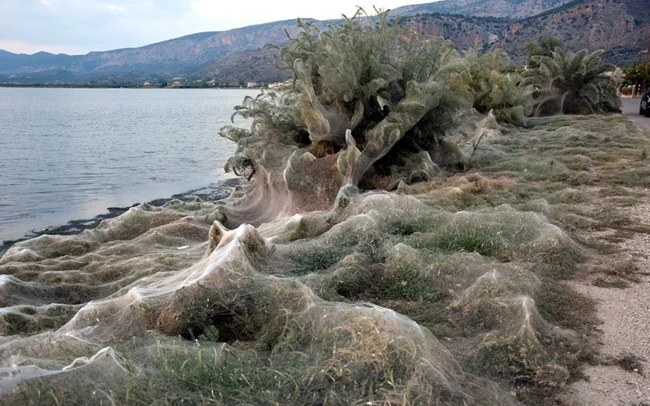
What kind of Halloween decorations did you have?
This poses no danger to humans, and in fact, it's beneficial. Tetragnathids are non-venomous and don't bite, and their enormous webs instantly caught all the midges and mosquitoes that had been plaguing the residents. This arthropod rampage doesn't last long, only a few weeks. Their webs are thin and unstable. They don't even need to be cleaned; they disintegrate and disappear on their own. 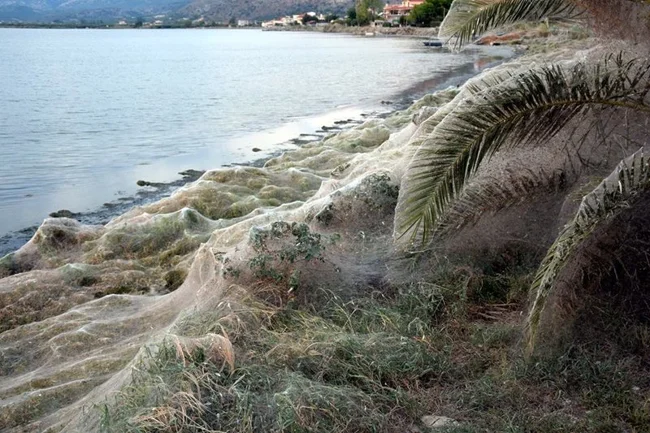
In some areas, the web becomes a continuous web, stretching for hundreds of meters!
Incidentally, spider infestations aren't limited to Aitoliko; tetragnathids are found all over the world. Population spikes have been recorded in America, where the arthropods entangled trees in a small park. And in rice fields in China, India, Thailand, and Japan, spider webs are a common sight. Not on such a large scale, of course, but still: the fine webs make everything look frosty in the morning. This is a huge plus, as standing water in the fields breeds a multitude of biting midges, which the spiders catch all night, protecting people. So, don't rush to grab a flamethrower—thank the spiders instead.













